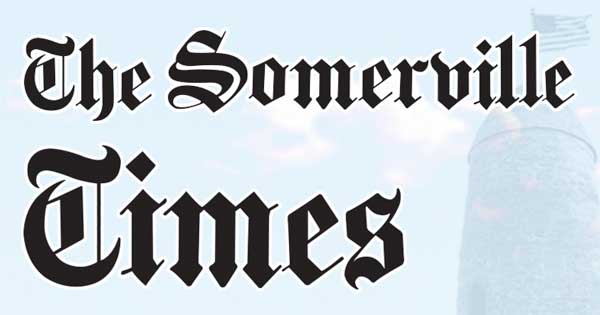Draft action plan for pollinators submitted


By Parker Garlough
In a meeting on Monday, June 10, the Pollinator Action Plan Advisory Committee presented a draft of its plan to support Somerville’s native pollinators. The plan includes suggestions for private landowners, landscaping companies, municipal agencies and schools. The meeting focused primarily on recommendations for homeowners.
Local residents have been invited to give their opinion, which will be taken into account before the final version of the plan is published on July 8. This plan, when completed, will be the result of about six months of work – the committee has been working since early 2024.
The committee used data collected by scientists and electronically through crowdsourcing to find patterns in pollinator populations and pollinator-plant relationships in Somerville. 299 pollinator species were observed, including many species of bees, moths, butterflies, wasps, beetles, flies, and one species of hummingbird. The majority had growing or stable populations, but some were declining.
Kate Kennen, owner of Offshoots, Inc., emphasized that plants native to the region are often the most beneficial, but other plants can play a role in supporting pollinators as well. Some plants are visited by many different pollinator species – for example, goldenrod supports 40% of the pollinator species recorded in Somerville.
To support residents who want to create pollinator gardens, the committee has created recipe cards describing which plants grow well together. They pointed out that residents without space for a garden plot can also participate – even pots with a single plant can support pollinators. They also intend to encourage residents to cut back on mowing in the summer to allow flowers to grow in their gardens. Next year, they plan to introduce a no-mowing initiative in May to help native bees emerge from hibernation.
One meeting attendee raised concerns about the lack of policy recommendations presented by the committee at Monday’s meeting. The action plan goes into more detail about changes the city could make to support pollinators.
Some relate to the use of public lands, such as existing parks. In addition, several ordinance changes are proposed, such as using zoning ordinances and the Green Score program to encourage native planting, revising and possibly relaxing the overgrowth ordinance, and removing certain exceptions to the outdoor lighting ordinance to better reduce light pollution.
The Pollinator Action Plan also includes recommendations for other groups that can support pollinators, including professional landscapers. It suggests that they refrain from raking, mowing and trimming perennials. In addition, they are encouraged to use composted leaf mulch instead of mulch and to leave some spots unmulched. The plan also recommends planting native plants in landscape areas.
Libraries and schools are also invited to get involved: Libraries can create an annual exhibit of pollinator resources and host educational events, according to the action plan. Tufts is expected to continue its pollinator research and educational work. K-12 schools are encouraged to plant pollinator habitats and then incorporate them into their curriculum.
On July 8th from 6:00 p.m. to 7:30 p.m. the advisory board will meet at the town hall to finalize the action plan.



